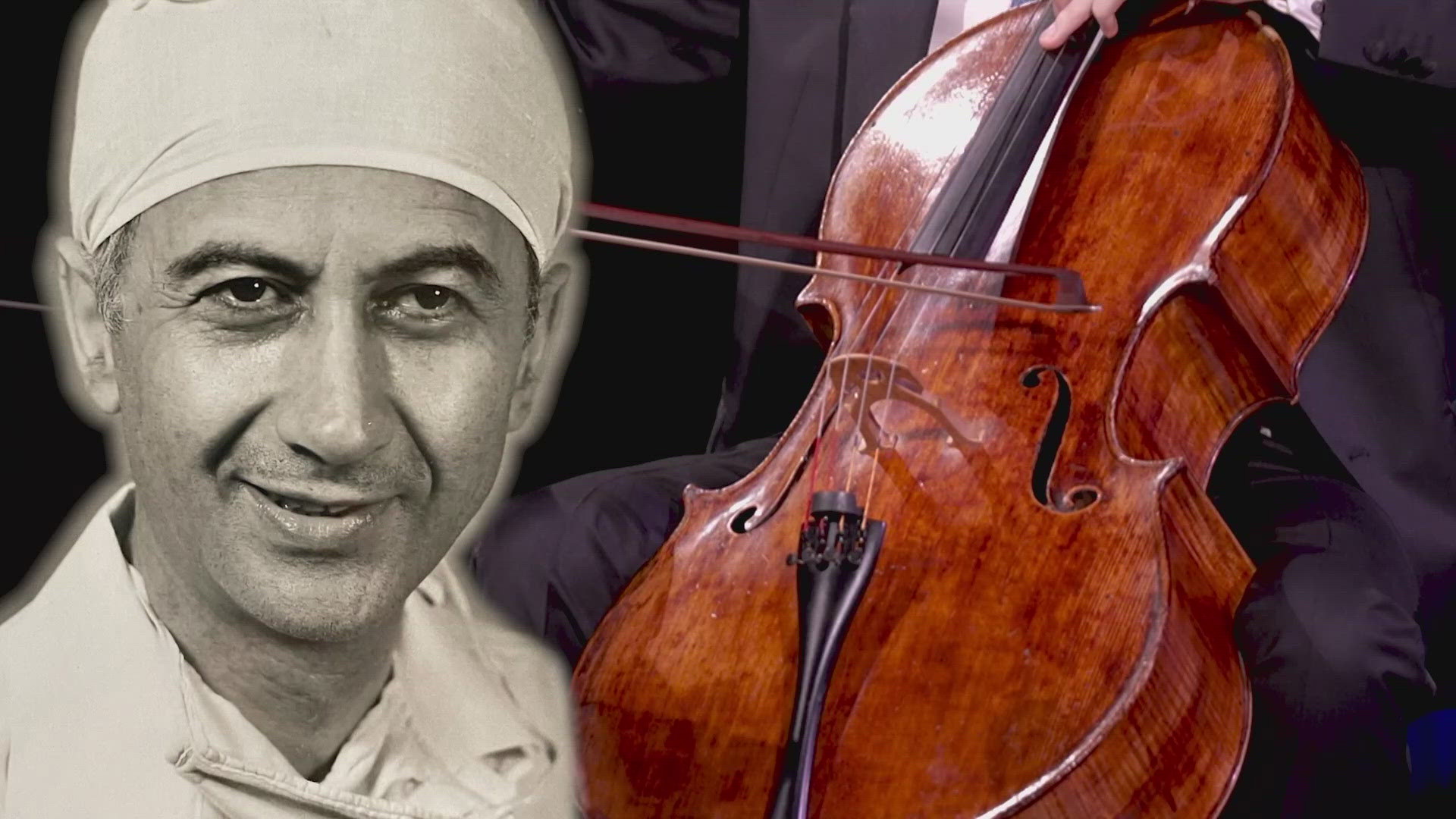DALLAS — At the Dallas Holocaust and Human Rights Museum, countless artifacts tell powerful stories. But one particular piece on display one Sunday in November captivated visitors in a unique and emotional way.
Professional musician John-Henry Crawford came to Dallas to perform on a cello that belonged to his late grandfather, Dr. Robert Popper. Dr. Popper narrowly escaped Nazi persecution by fleeing Austria in 1938, leaving behind nearly everything except one precious family heirloom, his family's beloved cello.
"The cello, if it could talk, I'm sure would have a lot to say," John-Henry told WFAA.
Dr. Popper's daughter, John-Henry's mom, Laura Crawford, told WFAA her father never saw his parents again. However, he managed to save this cherished item. “I can’t imagine just walking out of the home you grew up in, never to see it again,” she said.
Music was a central part of Dr. Popper’s life and also his parents'. After settling in the United States, he passed down his love of music and taught his children and grandchildren to play the cello. “We are just so grateful he was able to get out to tell our story,” Laura said. “But we’re sad for all the people who never got out and have no story to tell.”
Now, John-Henry shares his grandfather’s legacy by playing the cello. For him, the instrument serves as a means of preserving his grandfather’s spirit and honoring his family’s history. “It's a way that my grandfather, his legacy, and perhaps a part of his soul lives on in the cello,” he said.
John-Henry’s performance was especially meaningful to the Holocaust survivors and their families in the crowd.
Phil Glauben's late father, Max Glauben survived internment in the Polish death camps.
“I was moved to tears several times with the voice he was able to give that instrument, it was literally singing," Glauben told WFAA.
John-Henry said he hopes sharing his family’s story and music will help people learn more about the Holocaust.
“Learning about it, I think, is the best way to keep it from ever happening again."

